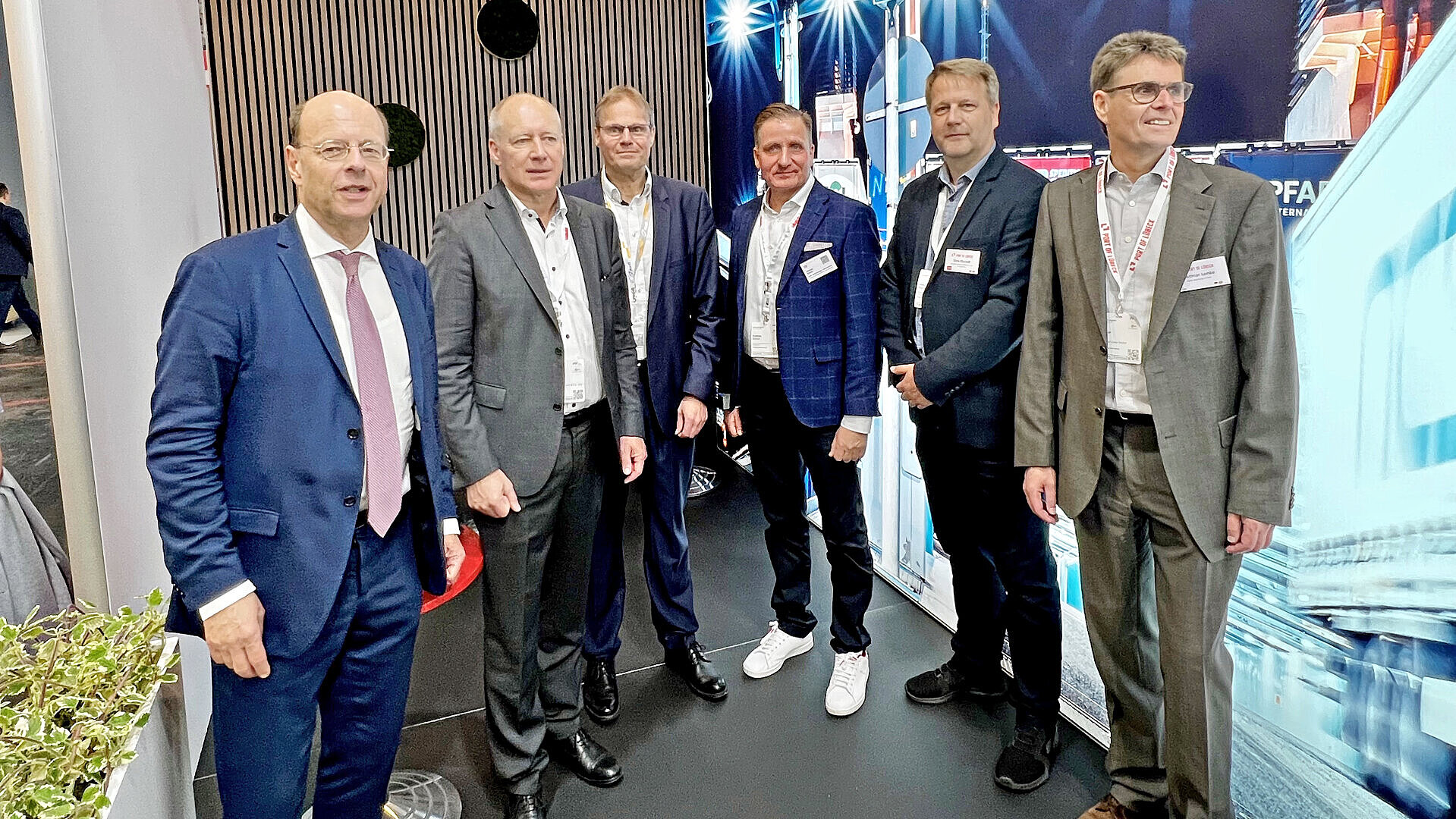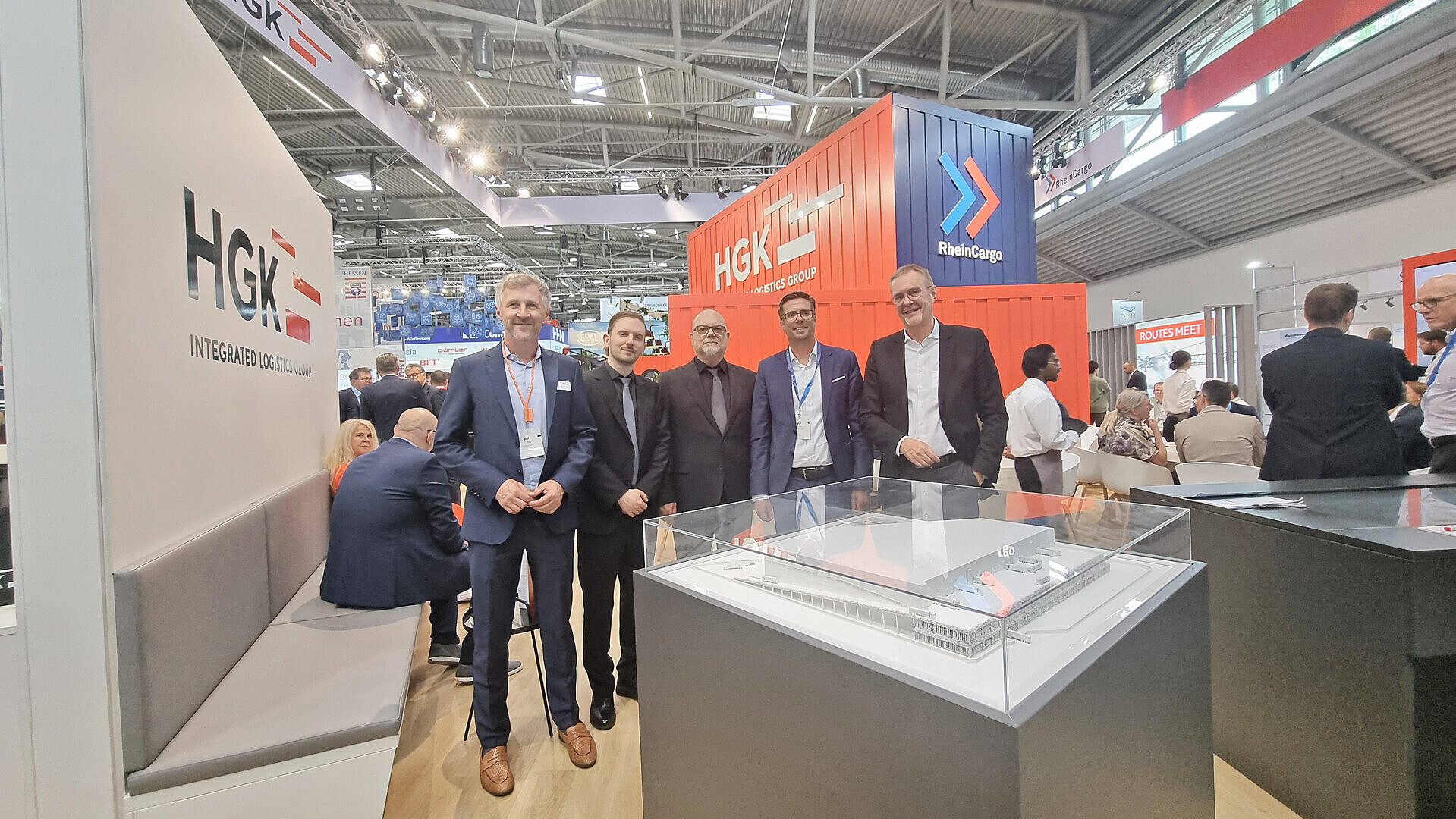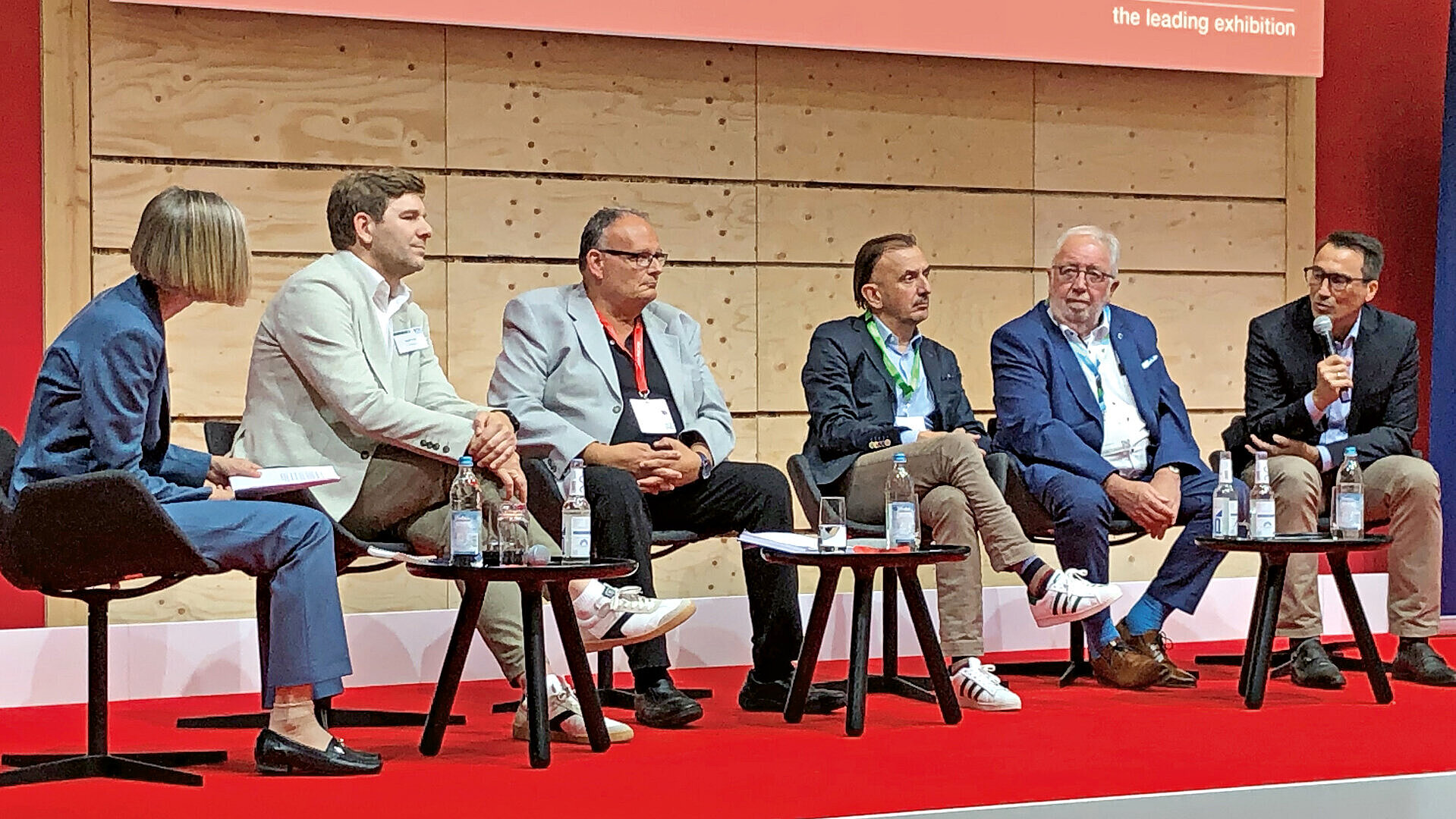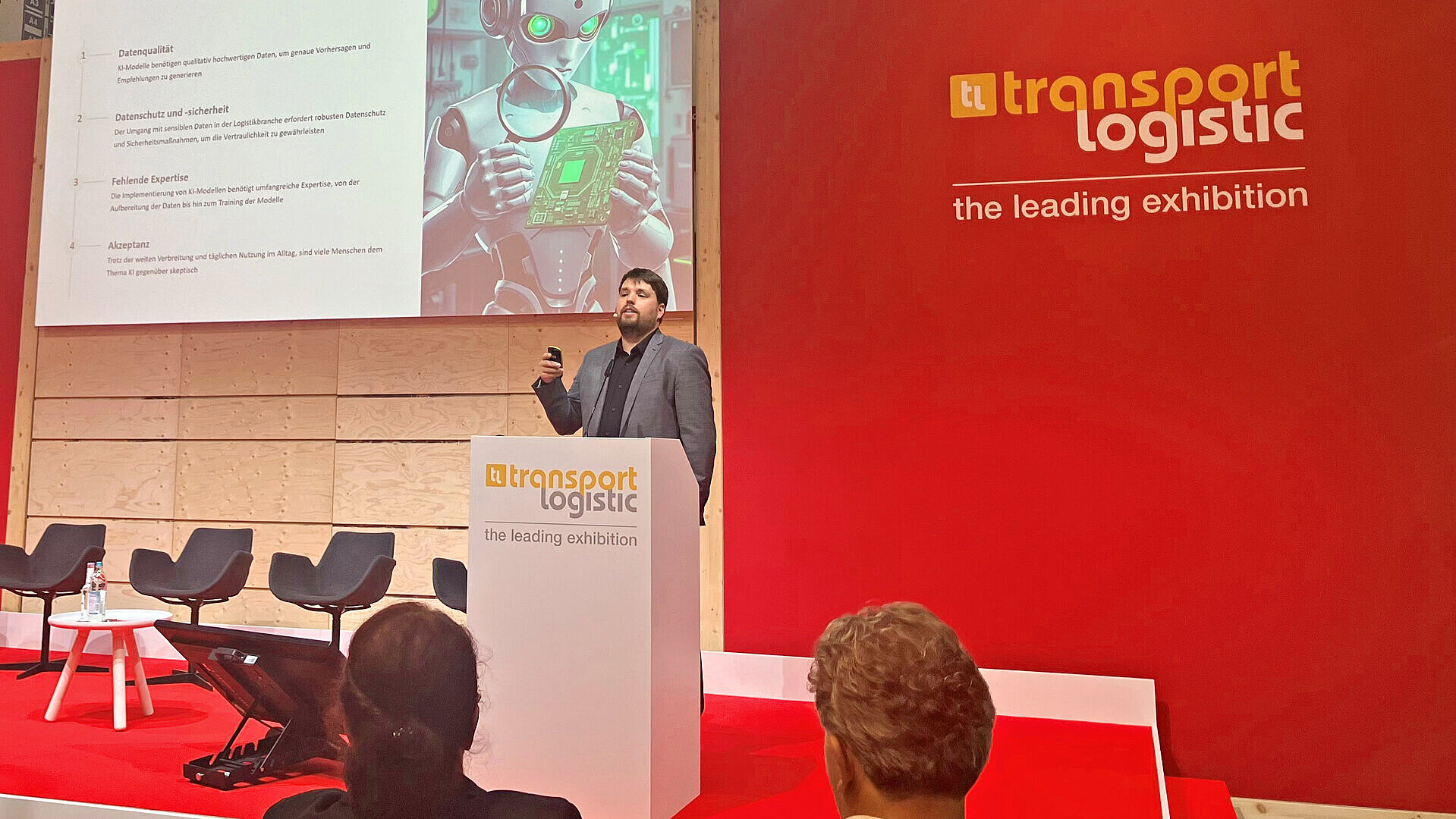
CEO Port of Lübeck: ‘Intermodal transport is not doing so badly after all’

At the end of the discussion ‘Prospects for intermodal transport in the Baltic Sea region – are new solutions and concepts needed?’ at transport logistic, Prof. Sebastian Jürgens, Managing Director of the Lübeck Port Company (LHG), concluded that intermodal transport is not in such a bad state as is often claimed. He emphasised at the outset that over 30 per cent of all German rail freight traffic already runs to and from ports. This figure is set to rise to over 40 per cent in the coming years. ‘We must therefore recognise that ports are key players in intermodal transport – and must get involved accordingly.’
Armin Riedl, Managing Director of rail logistics company Kombiverkehr, highlighted the positive momentum currently driving intermodal transport: ‘For Kombiverkehr, I can say that interest in this mode of transport remains high. We already have good enquiries for 2026 – from product areas that have been less in demand in recent years.’ According to Riedl, these include food, general cargo and parcel services, ‘which increasingly need our capacities.’
The discussion repeatedly focused on the question of how all those involved in combined transport can adapt to the ongoing – and, in everyone's opinion, necessary – general renovation of the high-performance networks without compromising transport quality too much. This also includes the corridor between Lübeck and Hamburg.
‘Here, we definitely want to ensure redundancy via two alternative routes,’ said Michael Körber, Head of Operations, Timetabling, Sales and Capacity Management at the infrastructure company DB InfraGO. Moderator Jürgens emphasised the constructive nature of the ongoing discussions, but added, ‘We are not yet completely reassured about the diversion plans between Hamburg and Lübeck.’
The participants were concerned that the federal government had decided to contribute the funds for infrastructure renovation to DB InfraGO in the form of equity capital. ‘This leads to a return on equity, which must be offset by higher revenues – and this is done through track access charge increases,’ Körber calculated. ‘Despite the current disruptions, we are more successful overall than we were five or ten years ago,’ said Andreas Schulz, Managing Director of Deutsche Umschlaggesellschaft Schiene-Straße (DUSS). Many initially small railway companies (EVUs) have grown significantly during this time and become more efficient. Large EVUs, on the other hand, have successfully copied the flexibility of smaller companies – resulting in systems that offer all partners greater stability.
All participants in the discussion agreed on the issue of punctuality: ‘We can usually compensate for delays of perhaps two hours and successfully turn the trains around – provided we receive the relevant information in good time,’ said Dietmar Lonke, new managing director of the terminal company Baltic Rail Gate in Lübeck-Travemünde. ‘However, communication at the interface – and thus the adaptability of the terminal – must improve,’ Lonke demanded. The challenge here is that ‘ships and railways are bound by timetables and are only flexible to a limited extent compared to trucks.’
Stev Etzrodt, managing director of the Bode freight forwarding company based in Reinfeld near Lübeck – one of LHG's major port customers, which successfully relies on multimodal transport on a large scale – explained: ‘Even for us, a two-hour delay is still acceptable – as long as it stays that way.’ However, he has recently found that intermodal partners are ‘once again working more intensively within their own systems.’ The common interest, however, must be ‘that transport services can be booked through from start to finish.’ This does not require individual platforms, but rather one large shared platform – in the interests of the customer. ‘In order to increase intermodal transport, information networking must be optimised, especially when switching between rail, ship and truck. That is probably the biggest challenge we face.’
Moderator and LHG CEO Sebastian Jürgens announced that the panel participants at this event intend to continue working together with the respective associations to constructively promote intermodal transport in the future. (bo)



